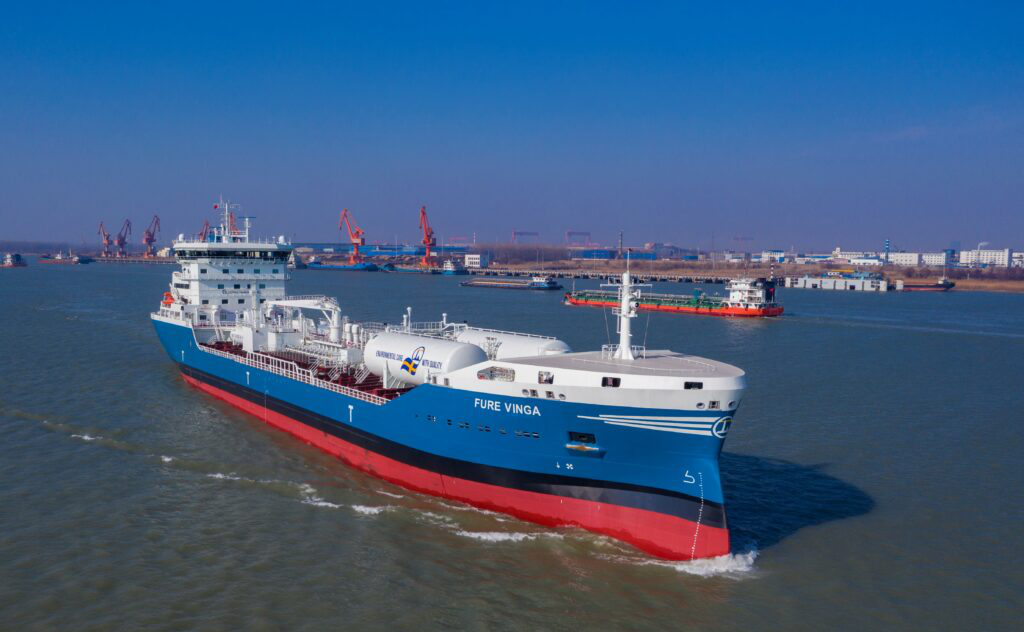
Repsol has bunkered a ship with LNG in the port of Cartagena in Spain, guaranteeing full compensation for the CO2 emissions associated with fuel consumption. The bunkering was carried out directly by the local regasifier Enagás, with the support of the Cartagena Port Authority and the Maritime Captaincy. So far, the most frequent method used by Repsol has been the supply of LNG by tanker trucks with bunkering capacity in any Spanish port.
The bunkering involved the Swedish-flagged chemical tanker Fure Vinga, owned by Furetank Rederi of Donsö, Sweden. The 150-metre long, 23-metre wide vessel received 420 cubic metres of LNG in about four hours. The Fure Vinga arrived from China and continued on its way to Rotterdam after calling at Cartagena.
With this bunkering, Repsol is paving the way for "zero-emission" supplies through the purchase of CO2 credits (VER) in the voluntary carbon market. Other direct offsets, such as tree planting, are known in the maritime sector, but there were no reports of emissions trading offsets.
The operation required a change in the regulation of the Spanish gas system, which promotes this type of supply and puts Spanish ports at the forefront of the sector. Repsol is also developing two LNG terminals in the ports of Bilbao and Santander. For the Spanish company, this is a new step towards its goal of becoming a net zero-emissions company by 2050, offering shipowners the opportunity to make their operations more environmentally friendly.
The cost of purchasing the certificates is not known, nor is it known whether it was passed on, and to what extent, to the shipowner.
It is not known the cost of purchasing the certificates or whether it was overturned and to what extent, on the shipowner.
Source: Repsol
 EN
EN  it
it

